How the "Airbnb" for Remote Offsites Is Growing 400% YoY
They sold over $1 million in services before launching the beta version of their booking platform, and are on track for $15 million GMV this year. Here's a look inside the biz...
.png)
Back when I was writing for Trends, my prediction for 2021 was that virtual events would be "the San Francisco" of corporate gatherings – everybody's leaving – as people flocked back to in-person with the easing of the pandemic.
Hampton member Jared Kleinert made a similar bet.
His company, Offsite, is building the "Airbnb" of corporate retreat planning, helping remote and hybrid teams meet up in person.
We used them last month for our first official team retreat at Hampton, and it was wild to realize that after more than a year of building, that was the first time we were all together (and probably the last time our entire team would fit in one elevator).
In this piece, Jared dives deep to unpack how the industry works, the challenges he's faced as a first-time founder, where he sees opportunities for others to get a foothold, and more. He talks about how they structure their outbound sales (currently >50% of revenue), the books that inspired him, the tools they use for development – even their choice of banks!
It's a fascinating look into the early days of a VC-backed startup (currently celebrating a $3 million raise).
Without further ado, enter Jared...
Hello! Who are you and what business did you start?
I’m Jared Kleinert, founder/CEO of Offsite. We plan team retreats and offsites for hundreds of remote and hybrid companies, saving them time, money, and stress in the planning process.
We're focused primarily on supporting other venture-backed and high-growth startups such as LinkSquares, Airbyte, Metabase, 15Five, mParticle, Flex, and Rattle, but we’ve also served communities like Hampton and YPO, venture capital firms such as Greylock, hedge funds, nonprofits, and even hospitals.
Offsites and team retreats are an exploding niche in a corporate travel market expected to surpass $500 billion by 2030.
Demand for venues that can host all-hands meetings, department-level meetings, executive team retreats, sales kickoffs, and other types of “offsites” continues to rise, and we’re hoping Offsite can become the “category-defining” company in a multi-billion dollar market with no clear winners as of yet.
We’ve raised $3 million to date from traditional VCs like Forum Ventures, a corporate venture investor in Automattic (makers of WordPress and Tumblr), and over 60 angel investors including co-founders and CEOs from Remote, Vendr, Convene, 15Five, Gainsight, and ChartMogul, as well as domain experts like early employees and C-suite execs from Airbnb, HubSpot, and Pendo.
We’re on pace to hit $15 million in GMV by end of year, which would be ~400% year-over-year growth for us, and have an 11-person, fully remote team.
What's your backstory and how did you come up with the idea?
When I was 16, I read an article in Forbes about “The Most Connected Man You Don’t Know In Silicon Valley'' and decided to cold email David Hassell, the subject of the article. David is the co-founder/CEO of 15Five, which today is one of the leading employee engagement and retention platforms with 200+ employees, thousands of customers, and a near billion-dollar valuation.
Back when I reached out, they were in “stealth” and I had no idea what enterprise SaaS was, and I certainly didn’t know anything about “best practices” for employee engagement and retention. However, I started working under David (and his co-founder Shane Metcalf) as an unpaid intern, later becoming employee #7 at the company.
15Five was also a pioneering “remote first” company, and I attended offsites as an employee over the two years I worked there.
When I left the company, I decided not to attend college and instead began to study and profile top-performing Millennial entrepreneurs, actors, nonprofit founders, athletes, and others.
I co-authored an award-winning book with a traditional publisher, which led to speaking at TED and various TEDx events, which led to being a keynote speaker for organizations like Facebook, Samsung, Bacardi, Estee Lauder, IBM, Cornell, Berkeley, AdAge, and the National Speakers Association.
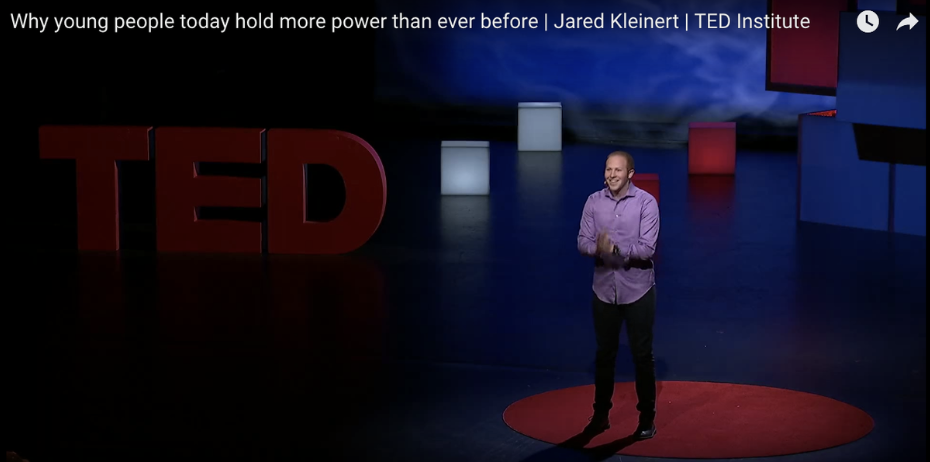
I remained in the “speaker/author/consultant” world for about seven years, with my last pre-pandemic business being Meeting of the Minds. Similar to Hampton, we worked with successful entrepreneurs through an invite-only annual membership program, centered around quarterly in-person summits.
These summits (essentially “offsites” like those we plan for clients now) were AMAZING to experience but were always a pain in the ass to plan logistically.
And so, I didn’t have any single “aha” moment for starting Offsite, but rather a decade of seemingly random experiences where I had attended, spoken at, or facilitated offsites.
During the pandemic, when in-person events came to a screeching halt, I was betting the decades-long shift to more decentralized workforces would accelerate, meaning the number of offsites planned by remote and hybrid teams, in particular, would grow exponentially (and the importance of those offsites would increase dramatically as a result).
No one had developed a true ‘one-stop shop’ experience to solve the logistical challenges of planning offsites, team retreats, or conferences, so I decided to work on building a marketplace and tech-enabled services company around making offsite planning suck less.
Take us through the process of building and launching the first version of your product.
The initial vision for Offsite was to create both a “one-stop shop” online for all things offsite planning as well as a series of physical offsite campuses around the country. At one point, I was under contract to buy 20 acres of land in upstate New York back in 2021.
Thankfully, we moved away from construction and real estate, focusing on software and services instead.
One thing we did early on was a Design Sprint, which proved really useful for recruiting our initial engineering team as well as enrolling early investors and clients into our vision.
Over a few days, with the help of my friends at Distilled Strategy, we interviewed some of our early clients, sketched potential platform designs, ideated possible problems and solutions to solve with software, and prototyped the platform in Figma. Then, we spoke with prospects again to get more feedback.
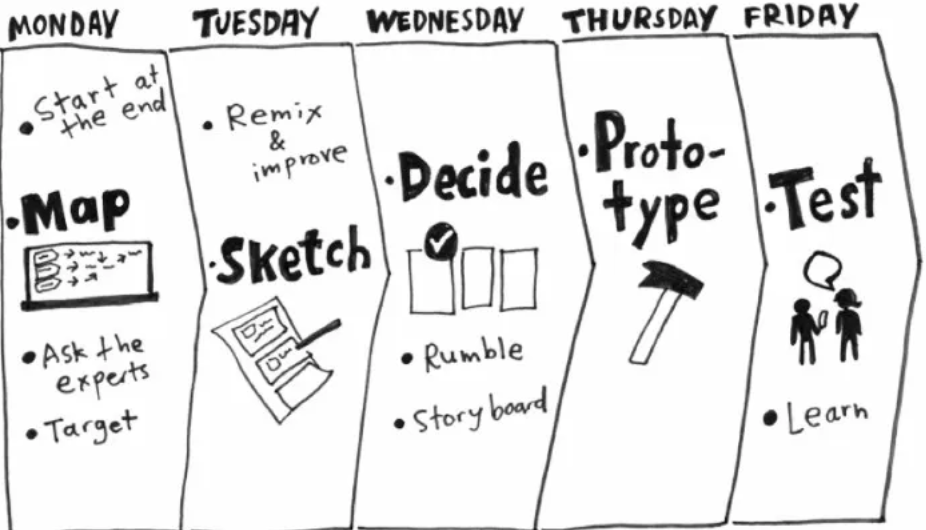
Before using our FIgma files to build the MVP of our software, I started selling into my personal network to prove whether there was a market for Offsite. Before we had a website, an email address, or a single line of code, I asked founder friends if they were planning team retreats.
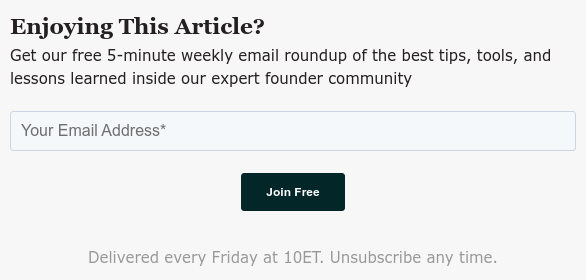
Sam will love this, but the god’s honest truth is that our first client actually came as a result of posting in the Trends Facebook Group, which was a private community from The Hustle.
After that, I sold almost $100k in offsites before we had any sort of meaningful website, and we sold over $1 million in offsites-as-a-service before launching our first product. As of July 2023, we’re now in “beta” for our first software product, which is essentially Airbnb for booking your offsite venue.
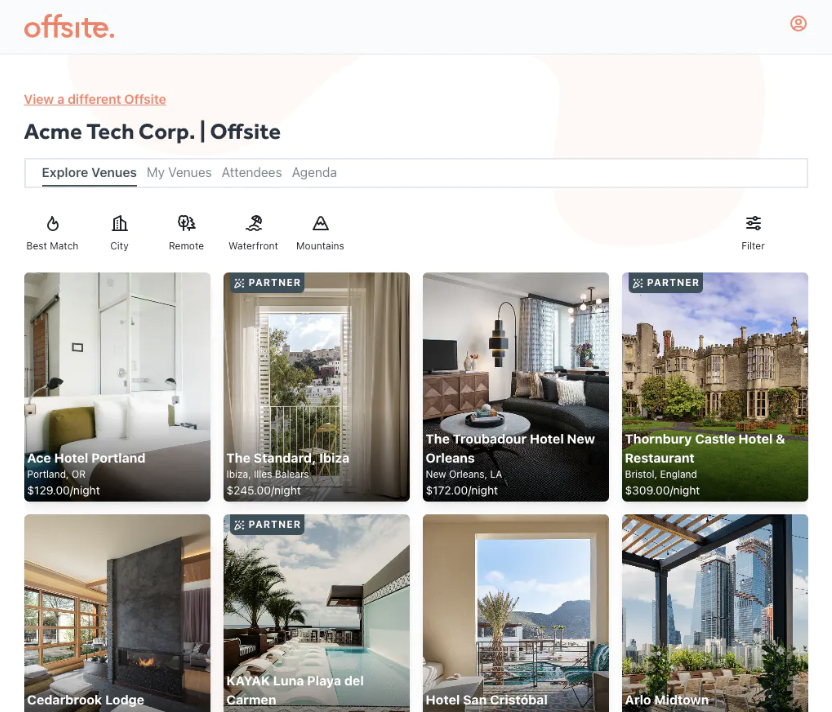
Since launch, what growth channels have been most effective for you?
Over half of our business has come from Outbound Sales.
If you’ve nailed your Ideal Client Profile and have an easy way to find potential clients online based on job titles, location, or other easy-to-find attributes, then you can use tools like LinkedIn Navigator and Seamless.ai to quickly build prospect lists.
We use HubSpot for our CRM and for outbound email campaigns. HubSpot has multi-email “Sequences” with personalization tokens that make personalized outreach easy. Within an hour, I can create a new prospect list of contacts through Seamless.ai, upload those contacts to HubSpot, and send outbound emails to hundreds of potential clients.
We’ve also benefited from an Outbound SDR service to target another 1000+ prospects monthly. Replies simply show up in my inbox and I reply back to set up discovery calls. Easy money!
As for inbound, we have a lot of early success with various channels, which we’re now working to scale.
Surprisingly, some of our competitors send us leads because they’d rather focus on much larger offsites, and so they’ll send us offsites of 20-250 attendees. For any deals we close, we pay out a 10% commission. These kinds of channel partnerships are hit-or-miss, but a few meaningful partnerships could drive substantial opportunities for your business.
I’m also constantly tinkering with everything from webinars to guest blog posts, a private Slack community for offsite planners, event sponsorships, email newsletter sponsorships, and more. My goal is to find one or two more channels like outbound emails that can scale and generate predictable revenue.
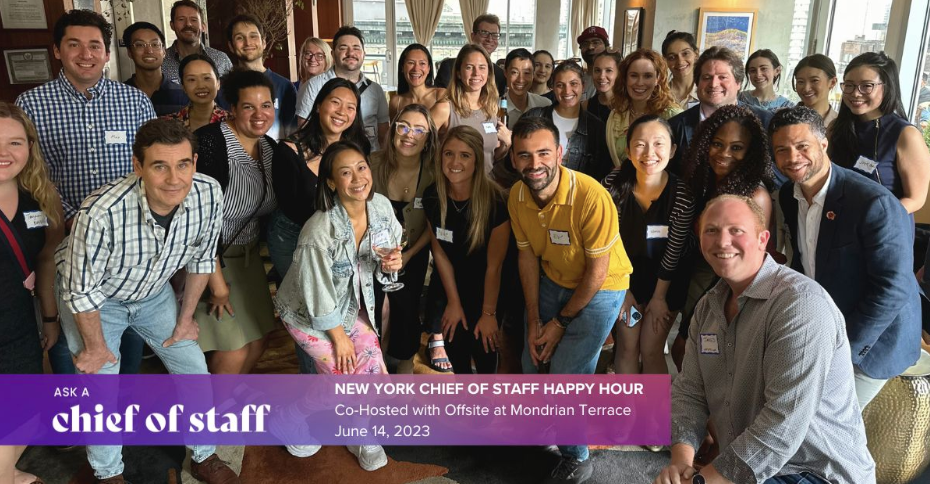
Did you ever have an “oh shit” moment where you thought it wouldn’t work?
I never thought Offsite wouldn’t work.
More than a decade of personal experience around the problem we’re solving, as well as hundreds of conversations with our ideal clients, provide me with confidence that there is a massive and growing market for software that makes offsite planning easier.
However, I’ve certainly made the journey harder for us by making every first-time founder mistake possible. These mistakes include:
- A couple of early hires that ended horribly
- Over-optimizing for the best possible terms with VCs early on (and turning away about $1.5 million in capital at terms I would have loved 6-12 months after the fact)
- Over-hiring
- Engineering in too many directions at once versus focusing on a specific product vision and MVP early on
- Not staying in founder-led sales long enough
If Offsite were going to fail, it would be by suicide. While I respect our competition and have gone out of my way to meet the CEOs of competitive companies, I am not concerned that anyone will put us out of business.
Thankfully, we’ve survived all these mistakes in addition to ongoing waves of the pandemic, one of the most challenging funding environments in decades, a tough macroeconomic climate, the second-largest bank failure in American history, and more.
What we got “right” was that:
- We’re building a company that solves problems we’ve experienced as a founding team
- We speak daily to our Ideal Clients and aim to be the most customer-friendly company in our industry
- A majority of our early hires are exceptional talents, working incredibly hard, who have now experienced adversity together and want to see each other succeed
- The macro trends are in our favor, from an ongoing shift in remote/hybrid work to the abandonment of commercial office space (we think a lot of that money will go towards offsites)
- We’re making money!!!
Our mission is to make the world a more connected place. Offsites and team retreats provide a unique opportunity for remote workers to reconnect with colleagues, which is vital through the loneliness epidemic we face as a society. This mission remains more important than ever, which is why our resolve to grow Offsite remains steadfast.
Can you break down the keys to this business model for us? What makes it work? And what do outsiders typically not understand about your industry?
Our business model is simple. We charge clients either a flat per-person, per-offsite fee, or they can use our curated Airbnb-style marketplace to book their offsite venue and pay a percentage-based service fee upon transactions.
Some of our competitors charge a percentage of total spend, but this incentivizes increasing offsite budgets rather than working to save clients as much money as possible.
We also make commissions from our hotel partners and other marketplace vendors. Right now, the service revenue is a majority of our business, but we are quickly moving towards a marketplace-first model where 50%+ of our revenue will come from commissions.
If we only ran a services business, we would be highly profitable. However, we see a venture-backable opportunity to build software that helps thousands of companies plan offsites every year, positively impacting hundreds of thousands of remote and hybrid workers.
Our BHAG, or “big hairy audacious goal,” is to generate $1 billion in GMV by 2030 through our marketplace, which would lead to a $100M/year business and multi-billion dollar valuation. This translates to about 500 to 1500 offsites per year depending on the average group size and whether it will increase or decrease at scale.
What platform/tools are absolutely crucial for your business?
Our “stack” is pretty standard for a software business.
For sales, we use HubSpot, Seamless.ai, Zoom (duh), and DocuSign.
For developing software, we use GitHub, Linear, Figma, Segment, UserPilot, Custify, and a handful of other tools that our engineers know, like, and trust.
For the rest of the team, we use Slack and Notion as our main channels of communication. We also use Brex for company credit cards and Chase for banking (even before SVB collapsed).
Most importantly, we plan quarterly offsites! I’d argue regular team retreats should be a critical practice for running any remote or hybrid company, and therefore Offsite should become part of your stack 😉
What have been the most influential books, podcasts, or other resources?
My favorite book of all time is an oldie-but-a-goodie called The Law of Success by Napoleon Hill. It’s the precursor to Think and Grow Rich and documents business fundamentals that I like to remind myself of once or twice a year.
I also do a lot of executive coaching. I’ve worked with three separate individuals (two of whom are on Offsite’s cap table) to navigate the various challenges we’ve faced and maintain the best headspace possible to perform. Executive coaching can be expensive, but it is worth every penny, and I would recommend it to every founder/CEO. I would also recommend sponsoring executive coaching for key employees to increase their performance.
I could shout out a million other books, podcasts, and email newsletters…but I’ll share something else that’s helped me a lot in the last six months. That would be Brazilian jiu-jitsu! I’ve been training about three times per week since late last year, and it’s helped me stay humble, manage stress, and remain calm under pressure.
Where do you see untapped opportunities in the market? What business do you wish someone else would build that would make your job easier?
I still believe the B2B version of AutoCamp or Getaway would be a killer company.
Remember when I said we almost bought 20 acres of land in upstate New York to build a physical offsite campus?

If someone created co-branded campuses within two hours of major markets like New York, San Francisco, Denver, Austin, Atlanta, and elsewhere, and made exceptional meeting space with high-speed internet as well as cozy cabins to sleep in, they would make a fortune.
However, you would need deep expertise in real estate, plus lots of capital, to make this work. I’m planning to revisit this whenever Offsite is acquired and/or we’ve raised our Series D and can invest in making one campus (like our version of Peloton Studios), so if you want a head start, here’s your chance!
What are some strong opinions you have about leadership, and how do you actually put those into practice in your company?
My new favorite saying is, “I don’t know shit about fuck.”
In other words, the more I learn, the more I realize how little I know. This is why I’ve worked hard to surround myself with as many talented and diverse people as possible.
With access to 60+ angel investors, various executive coaches, and groups like Hampton in addition to the personal network I built over a decade before starting Offsite, there’s no problem I shouldn’t be able to solve.
Having this type of network only works with a “servant leadership” mindset. While I’m intrinsically motivated to see Offsite succeed for my own benefit, and to positively impact millions of remote and hybrid workers around the globe, I’m also obligated to my team, clients, investors, partners, and others to work my ass off and lead as best I can.
In short, I’m an extreme ownership kinda guy.
Where can we go to learn more?
If you’re planning a team retreat, head to offsite.com or share our website with your Chief of Staff, Executive Assistant, or any other “people leaders” at your company.
You can email me anytime, or find me on Twitter.
I’m most active on LinkedIn.
Personally, I find being the CEO of a startup to be downright exhilarating. But, as I'm sure you well know, it can also be a bit lonely and stressful at times, too.
Because, let's be honest, if you're the kind of person with the guts to actually launch and run a startup, then you can bet everyone will always be asking you a thousand questions, expecting you to have all the right answers -- all the time.
And that's okay! Navigating this kind of pressure is the job.
But what about all the difficult questions that you have as you reach each new level of growth and success? For tax questions, you have an accountant. For legal, your attorney. And for tech. your dev team.
This is where Hampton comes in.
Hampton's a private and highly vetted network for high-growth founders and CEOs.

.png?width=352&name=Blog%20Featured%20Image%20(8).png)

.png?width=352&name=Blog_Featured_Image_(39).png)

